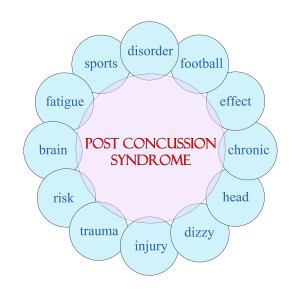 Concussions are silent and dangerous. There may be a bump or cut on the head, but the serious damage may not be visible. Spotting the signs are key to knowing when to get help. First, you need to understand the definition of a concussion.
Concussions are silent and dangerous. There may be a bump or cut on the head, but the serious damage may not be visible. Spotting the signs are key to knowing when to get help. First, you need to understand the definition of a concussion.
A concussion occurs when there is a sudden blow, or impact, to an individual’s head. The brain gets jostled, which can cause damage to blood vessels, nerves and can create swelling of the brain. All of which can be very damaging to the individual.
Signs of a concussion:
- Slurred speech
- Uncoordinated, clumsy movements
- Confusion
- Dizziness
- Ringing in the ears
- Headache
- Nausea/vomiting
- Sensitivity to light or noise
- Loss of memory
- Behavioral changes
- Sluggish
Once you’ve determined that a concussion has happened, or even if you suspect a concussion, consult with a doctor immediately. He/she will be able to determine the severity and direct you in receiving the proper treatment. Some instances are not as serious as others. They are graded from mild to serious and only a professional can diagnose the severity of a concussion.
If you do have a concussion, even a mild one, cessation from athletic activities is vital to your recovery. Rest and try avoid anything that could aggravate or re-injure the brain. Once you have recovered, take precautions to avoid situations where you can get hurt again. If you play sports, wear an appropriate helmet for protection from impacts. Avoid fighting since many concussions occur from attacks and blows to the head.
Unlike previous beliefs that you had to keep the individual awake, doctors have deemed it safe to allow a person with a concussion to sleep. If you have trouble waking that person or if it is very difficult to wake him/her, you need to take him/her to the hospital to be evaluated immediately. This could be a sign of severe damage and it needs to be addressed by a physician.
Find a Fort Myers, FL Neurologist at ipalc.org to help you continue living a happy, healthy life
Share on Facebook



 Southwest Florida Medicine.com is dedicated to bringing you the very best health information available today!
Subscribe or check back regularly!
Southwest Florida Medicine.com is dedicated to bringing you the very best health information available today!
Subscribe or check back regularly!